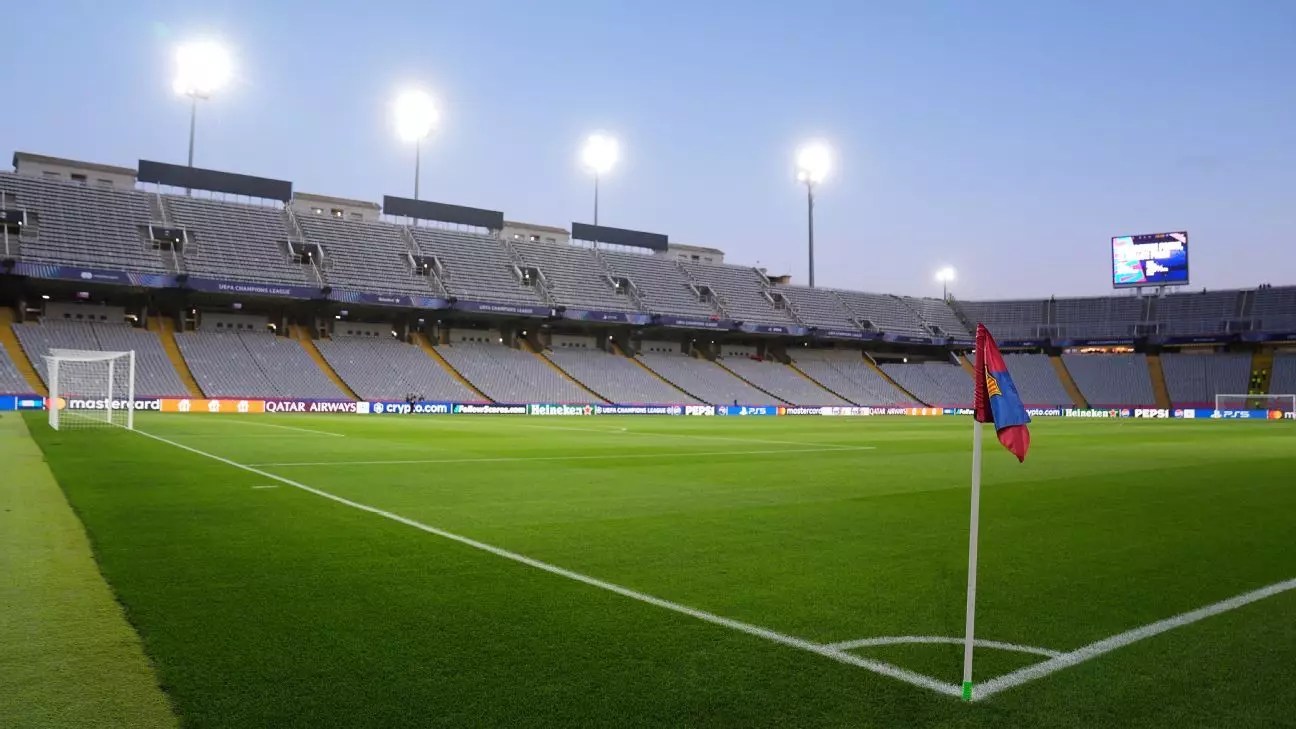In a surprising move that has generated substantial buzz within the football community, FC Barcelona announced an indefinite closure of the Espai d’Animació (EDA) section behind the goal at the Olympic Stadium. This decision stems from ongoing conflicts with the supporters’ groups stemming from an inability to settle outstanding fines that have accumulated due to fan misconduct. The club’s decision was made official ahead of their Champions League match against Brest and has raised questions about the implications for supporters and the overall atmosphere at the stadium.
The heart of the matter lies in the unresolved fines, which the club states amount to approximately €21,000 ($22,092). Barcelona claimed that the supporters’ groups had entered into an agreement to pay any fines incurred due to their behavior, which ultimately led to 14 disciplinary actions last season. This situation highlights not only the financial burden stemming from such infractions but also the responsibilities that support groups hold regarding their conduct during matches.
Repeated warnings and granted deadlines have not changed the groups’ failure to comply, prompting the club to take such a drastic step. The decision to close the EDA not only affects around 600 dedicated fans but also potentially alters the game experience for all spectators at the Olympic Stadium. The emotional and financial investment from supporters seemingly went unreciprocated, fostering a sense of disillusionment.
Barcelona’s management has indicated willingness to re-engage with the supporters following the resolution of the outstanding fines. However, this unprecedented closure raises questions about the sustainability of such relationships in the long term. The EDA’s role has been significant in boosting morale and enhancing the atmosphere at the stadium, especially during a period when the club is temporarily displaced from its iconic Camp Nou.
As the club prepares to face Brest in the Champions League and Las Palmas in La Liga, there will undoubtedly be a noticeable void where the vibrant EDA supporters once congregated. The dimension of live sports is inherently tied to the fans’ energy, and this decision may infringe upon the emotional aspects of football that players and fans alike cherish.
The situation underscores a critical juncture for FC Barcelona in managing its relationship with its fanbase. Supporters are key stakeholders, and their absence may signify a broader disconnect between the organization’s administration and the passionate community of fans. The resolution of these financial disputes is vital not just for settling debts but for reaffirming the vital bond between the club and its supporters.
Navigating this tension will require open lines of communication, transparent policies, and possibly reformative measures to reinstate trust. As Barcelona embarks upon the remainder of the season without a crucial piece of its supporter culture, the outcome of these deliberations holds significant weight for the club’s image and success in both domestic and international arenas. The looming question of how to reconcile their relationship with fans remains unanswered, casting a shadow over the future dynamics of supporter engagement.


Leave a Reply